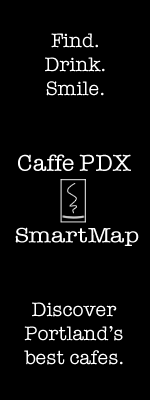#Trust30 Day 25 - Overcoming false expectations
 Friday, June 24, 2011 at 9:09PM
Friday, June 24, 2011 at 9:09PM  Good and bad are but names very readily transferable to that or this; the only right is what is after my constitution, the only wrong what is against it. – Ralph Waldo Emerson
Good and bad are but names very readily transferable to that or this; the only right is what is after my constitution, the only wrong what is against it. – Ralph Waldo Emerson
We are our most potent at our most ordinary. And yet most of us discount our “ordinary” because it is, well, ordinary. Or so we believe. But my ordinary is not yours. Three things block us from putting down our clever and picking up our ordinary: false comparisons with others (I’m not as good a writer as _____), false expectations of ourselves (I should be on the NYTimes best seller list or not write at all), and false investments in a story (it’s all been written before, I shouldn’t bother). What are your false comparisons? What are your false expectations? What are your false investments in a story? List them. Each keep you from that internal knowing about which Emerson writes. Each keeps you from making your strong offer to the world. Put down your clever, and pick up your ordinary.—Patti Digh
If I were to rewrite the first sentence of this prompt, I would remove the word ordinary and in its place use the word authentic, because in this context, ordinary is far from ordinary. However, I do understand what she is saying—that we should harness the power of our uniqueness. There is absolute scarcity in the competition to be us (since there is only one) and therefore, the gifts we bring to the world carry great value.
The disease of comparing ourselves to others is a dangerous malady. It is human nature, but it can be deadly. We all do it. I am guilty. From time to time, I catch myself comparing myself to:
- People with successful websites, who have written books or have been able to promote their online businesses better than I have.
- My brother, who is a successful farmer. He has found exactly what he wants to do in life.
- Other coffee authors. I often wonder about the wisdom of writing about coffee. There are many sites and many books that have been written about the industry. Why would anyone bother to read something that I write?
- When I was at music school, I compared my guitar skills to those of my classmates and many of my professors. Those comparisons drove me out of school.
- I compare myself to people who have thousands and thousands of “followers” on Twitter or who have built up engaged, active communities online. Those people are “successful” in social media.
- I compare myself to entrepreneurs who have a talent and a special drive for creating businesses. They seem fearless in selling themselves or their ideas.
- I compare myself with people who have put up websites and had remarkable success very quickly. Their stories are encouraging, but at the same time frustrating because I compare myself to them. I would prefer to find success quickly, but I am receiving the valuable lesson of perseverance.
These expectations and comparisons may be false, but they are real. The challenge is remembering they are not true.
When we are able to accept who we are, when we are comfortable in our own skin, we can just be. Not many people can do that, but the state of mind is worth aiming for. It is what makes our “ordinary” exceptional.


